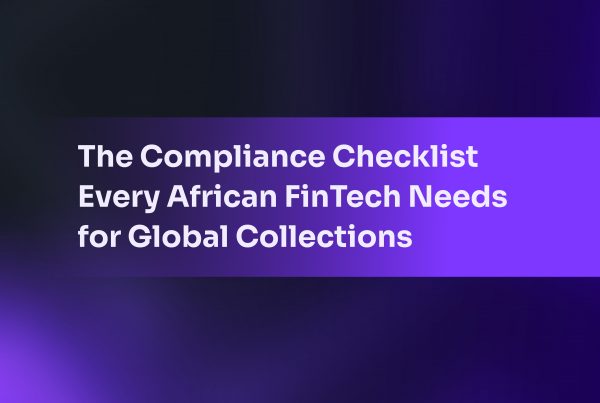Introduction
The 2025 edition of Stripe Sessions, the annual conference of payment giant Stripe held in early May (6–8) at Moscone West in San Francisco.
Fintech leaders gathered to speak on the future of payments, giving us a glimpse into the future of digital commerce.
While much of the spotlight was on global payment systems, there were two key developments concerning payments in Africa.
In this article, we discussed the two most significant talking points from the conference that concern African payments.
Stripe’s quiet moves in Africa
Although Stripe’s payment gateway isn’t directly available in most African markets, recent moves suggest the company hasn’t bowed out.
It’s taking a quieter, more strategic approach to its presence on the continent.
During Stripe Session 2025, the fintech announced the increase in the number of African countries where its tax automation tools will be available.
Stripe Tax is a comprehensive tax compliance solution from Stripe that helps businesses automate the complexities of calculating, collecting, and reporting sales tax, VAT, and GST across over 100 countries and most U.S. states.
Key features of Stripe Tax include tax obligation monitoring, simplified registration, accurate tax calculation and collection, automated filing and remittance, and flexible integration options.
The announcement at Stripe Session revealed that Benin, Burkina Faso, Cameroon, Cape Verde, and Ethiopia now have access to Stripe Tax.
Other African countries where Stripe Tax is available include Angola, Democratic Republic of Congo, Egypt, Guinea, Kenya, Mauritania, Morocco, Nigeria, Senegal, South Africa, Tanzania, Uganda, Zambia, and Zimbabwe.
While Stripe is still struggling to overcome the regulatory, infrastructural, and strategic factors holding back its payment gateway in many African markets, it is still maintaining its presence in Africa with Stripe Tax.
It is important to note that Stripe, however, operates through its Extended Network in select African countries, including Nigeria, South Africa, Kenya, Ghana, and Côte d’Ivoire, where Stripe’s services are accessible via partnerships or affiliated platforms rather than through direct operations.
These extended networks include Paystack, a Stripe-owned company, and Stripe Atlas, a program that allows entrepreneurs worldwide to incorporate a U.S. company, enabling access to Stripe’s full suite of services.
Stripe’s stablecoin launch leaves out key African markets
The second big announcement that concerned Africa at Stripe Session 2025 was Stripe’s roll out of stablecoin support, allowing businesses in over 101 countries to send, receive, and hold stablecoins like USDC and USDB as easily as fiat currency.
Surprisingly, Nigeria, Kenya, South Africa, and Egypt were absent from the list.
These four countries are widely recognised as Africa’s fintech powerhouses. Nigeria, in particular, stands out as one of the highest adopters of crypto in the world.
According to Chainalysis’ 2023 Geography of Cryptocurrency Report, Nigeria ranked second globally in crypto adoption, behind only India.
Additionally, over 70% of Nigerian crypto transactions involve stablecoins, making it the largest stablecoin market in Africa.
Stablecoins are increasingly used for remittances, commerce, and inflation protection, making them a key part of the country’s shadow financial system.
So why was Nigeria excluded? The answer lies in policy, not potential.
Nigeria has had a rocky relationship with crypto. In 2021, the Central Bank of Nigeria (CBN) banned financial institutions from dealing with crypto entities.
Although that ban was lifted in late 2023, the regulatory environment remains murky. A new law passed in March 2025 officially recognized digital assets as securities, placing them under CBN oversight. Now, only licensed institutions can manage or issue stablecoins, creating a regulatory bottleneck for global companies like Stripe.
Similar uncertainty plagues South Africa and Kenya. In South Africa, stablecoins currently fall outside existing crypto-asset classifications under the Financial Advisory and Intermediary Services (FAIS) Act. Kenya, meanwhile, is still ironing out its first official digital asset framework. Egypt maintains strict capital controls and has historically taken a cautious approach to crypto.
Stripe’s omission of these major markets is not a dismissal, it’s a message. The company’s decision to include smaller markets like Angola, Gambia, Togo, and Zambia, countries with clearer or more crypto-friendly rules, shows that regulatory clarity now matters more than market size.
This is a cautionary tale for African regulators. Even with talent, adoption, and infrastructure, lack of policy clarity can stall progress. Stripe’s stablecoin play is about compliance-first expansion, and unless governments move decisively to provide legal certainty, the continent’s biggest markets risk being left out of the next wave of fintech innovation.
Final thoughts
Stripe Sessions 2025 revealed something crucial: Africa is no longer an afterthought, but it’s also not guaranteed a front-row seat.
Stripe’s approach to the continent is clear; strategic, measured, and conditional. Innovation is welcome, but only where regulatory clarity, infrastructure, and compliance frameworks make scale possible.
For African founders, this moment demands more than building great products. It requires understanding the rails they’re building on; legal, financial, digital.
Compliance isn’t a checkbox; it’s a lever for trust. Infrastructure isn’t a backdrop; it’s the stage. And local partnerships aren’t optional, they’re the glue that holds systems together.
For policymakers, the message is even louder: if you want your country to be part of the next digital chapter, you must build bridges, not blockades. The future will not wait for countries still clinging to protectionism and fragmented systems. It will flow through those bold enough to interconnect, standardize, and scale.
This is where the Afincran vision comes in. At Fincra, we’re not just building financial tools, we’re laying the rails of a borderless, integrated Africa.
We’re working with regulators, entrepreneurs, and institutions to stitch together the fractured arteries of African commerce.
Because true transformation comes from shared prosperity built on love, trust, and structure.




